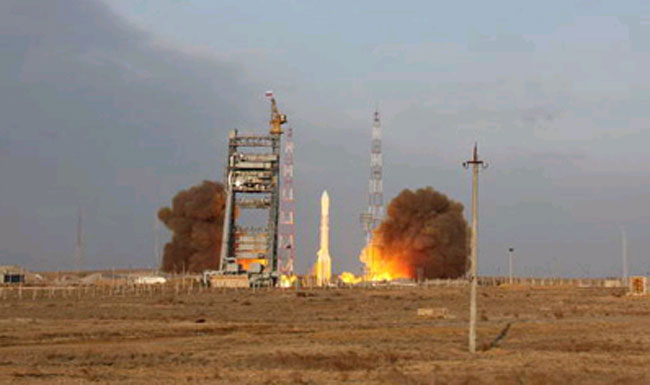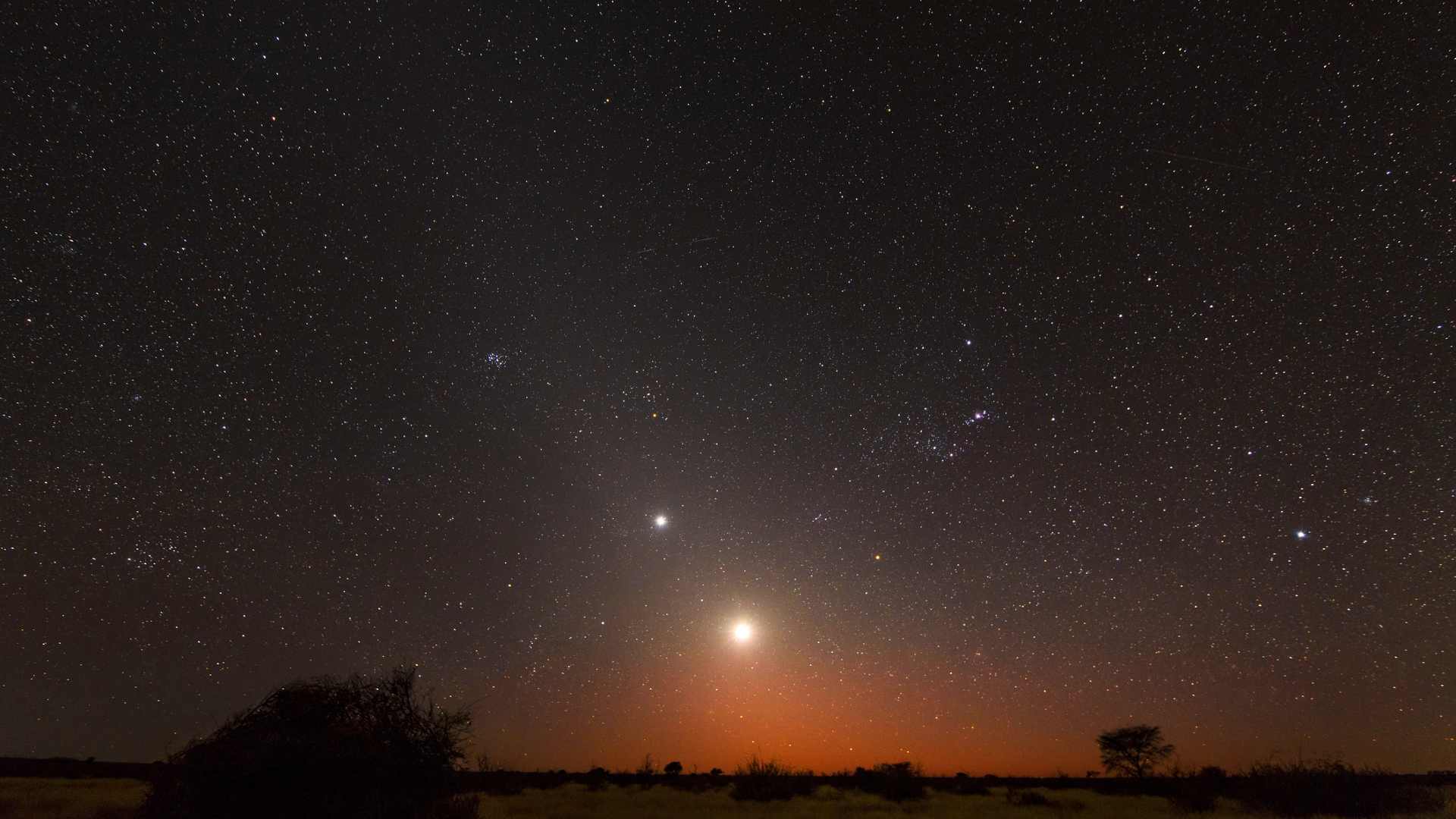Three Russian Navigation Satellites Launch From Kazakhstan

Breaking space news, the latest updates on rocket launches, skywatching events and more!
You are now subscribed
Your newsletter sign-up was successful
Want to add more newsletters?

Delivered daily
Daily Newsletter
Breaking space news, the latest updates on rocket launches, skywatching events and more!

Once a month
Watch This Space
Sign up to our monthly entertainment newsletter to keep up with all our coverage of the latest sci-fi and space movies, tv shows, games and books.

Once a week
Night Sky This Week
Discover this week's must-see night sky events, moon phases, and stunning astrophotos. Sign up for our skywatching newsletter and explore the universe with us!

Twice a month
Strange New Words
Space.com's Sci-Fi Reader's Club. Read a sci-fi short story every month and join a virtual community of fellow science fiction fans!
Flying forthe 350th time, a Proton rocket launched three new satellites for Russia's space navigation network Monday to ensure the system continues providing coverageof its home territory.
The Glonass spacecraft launched at 1038GMT (5:38 a.m. EST) from the Baikonur Cosmodrome in central Kazakhstan. The silver and white launcher, propelled by hydrazine fuel, ignited and quicklyroared away from the space center on the power of six main engines.
The Proton's three corestages placed the Block DM upper stage and three Glonass satellites in atemporary parking orbit less than 10 minutes after liftoff.
Two burns of the Block DMupper stage were planned to put the satellites in a circular orbit 12,000 mileshigh with an inclination of 64.8 degrees. The Glonass payloads were deployedshortly after 1400 GMT (9 a.m. EST).
The Russian Space Agencysaid the upper stage released the satellites into the expected orbit.
Monday's launch was the350th flight of the workhorse Proton rocket. Thebooster was originally conceived as a vehicle to heave massive nuclear bombs todistant targets, but the Proton's mission was changed to a satellite launcherin the 1960s.
Since debuting in 1965,Proton variants have launched military and commercial satellites,interplanetary probes and modules for manned space stations.
Breaking space news, the latest updates on rocket launches, skywatching events and more!
Each of the 3,000-poundGlonass satellites is designed to last seven years broadcasting navigationsignals to Russian military and civilian users.
The Glonasssystem is Russia's counterpart to the U.S. GlobalPositioning System. Glonass data are used around the world to determineusers' coordinates, velocity and precise time.
The fleet has been stymiedby underfunding and delays throughout its 27-year history, its coveragedeclining as Russia suffered from economic ruin following the collapse of the Soviet Union.
The Russian government haspledged more money for the program in recent years in an attempt to rejuvenatethe satellite constellation to provide continuous global coverage.
Today's Glonass systemincludes 19 satellites, but one of those is about to be decommissioned and twomore are out of service for maintenance, according to an update posted thisweek on the Russian Space Agency's Web site.
The three satelliteslaunched Monday should ensure the fleet provides blanket coverage of Russianterritory, which requires 18 operating spacecraft. Global service requires 24healthy satellites.
Glonass spacecraft arepositioned in three planes, each designed with eight satellites to provideworldwide coverage. But only one of the three orbital planes currently containseight spacecraft, according to the Russian Space Agency.
Russia planned to launch six Glonasssatellites in two launches this year, but a mission in September was postponeddue to technical issues. The next Glonass launch is now scheduled for February.
- Images - 20 Great Rocket Launches
- Video: SpaceX's Falcon 1 Rocket Success!
- Russian Proton Rocket Launches Communication Satellite Pair
Copyright 2009 SpaceflightNow.com,
Stephen Clark is the Editor of Spaceflight Now, a web-based publication dedicated to covering rocket launches, human spaceflight and exploration. He joined the Spaceflight Now team in 2009 and previously wrote as a senior reporter with the Daily Texan. You can follow Stephen's latest project at SpaceflightNow.com and on Twitter.

